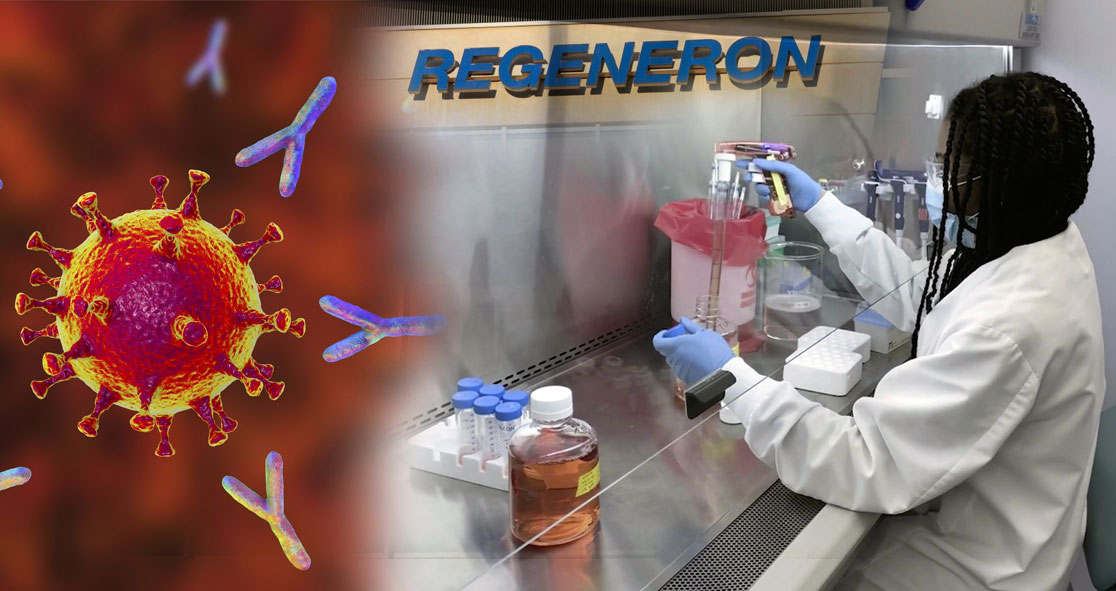REGEN-COV, a COVID-19 antibody cocktail, continues to show great efficacy against the coronavirus (SARS-CoV-2).
Regeneron Pharmaceuticals, Inc., an American biotechnology company headquartered in Westchester County, New York, develops the antibody cocktail.
A new British study has shown that REGEN-COV reduced the risk of death in hospitalized patients unable to mount their own immune response by 20%, according to BioSpace – the most comprehensive Life Science industry news and information source.
This was the first study to demonstrate the efficacy of the antibody treatment in patients hospitalized with COVID-19.
Regeneron said it would release the findings from the study and share them with the Food and Drug Administration (FDA). It said it would also submit an application for the FDA’s Emergency Use Authorization (EUA) for the extended use of the treatment in appropriate patients.
REGEN-COV is a combination of two monoclonal antibodies called casirivimab and imedvimab. The FDA granted the first EUA of the therapy in November 2020. Earlier this month, the FDA approved a lower-dose version of this treatment.
The study found that adding REGEN-COV to the standard of care in hospitalized patients reduced the death risk by 20%, especially in the immune-inactive patients. It also found that after 28 days, 24% of patients in the REGEN-COV group died compared with 30% in the usual care group.
Furthermore, the overall duration of hospital stay was four days shorter in those who were given REGEN-COV.
David Weinreich, Senior VP, Global Clinical Development at Regeneron, said the study showed that treating patients, who are unable to develop their own COVID-19 antibodies, with REGEN-COV “dramatically reduced their risk of dying or being on a ventilator.”
He also said that the antibody cocktail reduced the number of days these patients stayed in the hospital.
“The trial was conducted at a time when most patients had not been fully vaccinated,” Weinreich added. “These results provide hope to patients who have a poor immune response to either the vaccine or natural infection, as well as those who are exposed to variants for whom their existing antibodies might be sub-optimal.”
Preliminary studies of the antibody cocktail showed that it could lower the risk of death or the need for mechanical ventilation.
Sir Peter Horby, a British epidemiologist and professor of Emerging Infectious Diseases and Global Health at the University of Oxford, called the study findings exciting.
“The hope was that by giving a combination of antibodies targeting the SARS-CoV-2 virus, we would be able to reduce the worst manifestations of COVID-19,” he said. “There was, however, great uncertainty about the value of antiviral therapies in late-stage COVID-19 disease.”
“It is wonderful to learn that even in advanced COVID-19 disease, targeting the virus can reduce mortality in patients who have failed to mount an antibody response of their own,” Sir Horby added.
Chief Scientific Officer of Regeneron George Yancopoulos said thanked the study researchers for their ongoing work assessing the antibody cocktail in patients. He said the results mean more patients could benefit from REGEN-COV.
“We intend to rapidly discuss these results with regulatory authorities, including in the U.S., where we will ask for our EUA to be expanded to include appropriate hospitalized patients,” Yonacopoulos said. The article was published on BioSpace.























